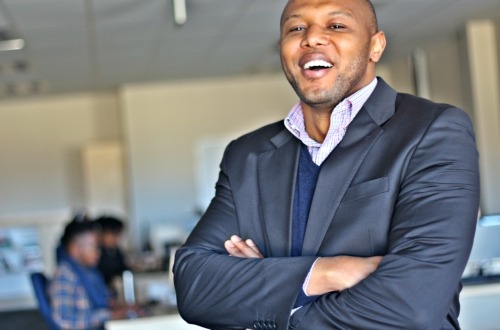
In 2015, the founders of Sable Assets, a Johannesburg-based software development company, made a big move.
They took on 30 young software developers onboard, many with little to no development experience.
The company, which is located at the Riversands Incubation Hub, provides data warehousing software systems and build customised software solutions for both public and private sector clients.
The decision to train and employ entry level software developers, while not a simple one, saw the young company drastically increase its capacity practically overnight.
That was the goal, says Sandiswa Nqampoyi, general manager who founded the company with company chairman, Sandile Swana in 2011.
Local solution to local problems
Nqampoyi and Swana had grown increasingly frustrated with outsourcing their software development requirements overseas. It was after a particularly difficult and expensive experience with developers in the Ukraine (who were working to add functionality and update their asset management system’s tech) that they made the decision to build their own capacity locally.
Faced with the prospect of bringing their work back home, they had concerns with South African software development which is known to be expensive with the level of skill and speed also being a challenge.
Much has been said about South Africa’s ICT skills shortage. According to the 2016 JCSE ICT Skills Survey – 71% of businesses interviewed reported a serious impact of the skills shortage on their business and 29% indicated a threat to their viability.
The idea was to build a software development hub that would employ “young software developers” which they would be able to mould into what they needed.
“When our work is out there – we want it so that you can’t tell that it wasn’t made in India or the US”
“We wanted people who would work through the entire software development cycle,” says Nqampoyi.
This would also enable them to build their own products in order to compete “with the big guys”, says Nqompoyi; as well as “grow and diversify the business and their offering.”
The makings of a coder
For their inaugural program they took on 30 interns, many of whom were recruited from Linkedin. The professional social network brought in the bulk, Nqampoyi says. Other social networking platforms have also been useful including Twitter and Facebook. They have also had the National Youth Development Agency refer individuals for inclusion in the programme. Most of the interns are from outside the Gauteng province.
When they first join Sable, the coders are trained by Dr Martin Mueller, a technical director at a Johannesburg-based energy company, Modern Energy, who Nqampoyi refers to as the “geek”. Following that they are thrown right in, working in teams on any of the number of projects that Sable is handling for their private and public sector clients.
Right now this includes a risk management software solution for an insurance company which will allow the company to assess the risks associated with their properties using data such as crime statistics, soil conditions and weather.
One of their largest projects to date is building a performance management system for a local municipality. The system measures targets and key performance indicators (KPI’s), this was work which would previously be done in spread sheets.
‘Sink or swim’
Managing a relatively inexperienced and young team of software developers has been interesting. The energy and enthusiasm is apparent as well as a hunger to learn, says Nqompoyi. “But sometimes that needs to be stocked,” he adds.
But there are challenges.
“Not only are we a new business, but we are dealing with 30 young people, most of whom have just recently started working and some who have never worked before,” says Nqampoyi.
“The goal is for them to become senior developers or analysts”
They are also dealing with varying levels of skills and diverse backgrounds. As Nqampoyi explains, they get anyone from PHD candidates to coders holding Masters degrees in computer science and others with Diplomas in electrical engineering, and everything in between.
“That forced us to change our approach and to manage our expectations,” says Nqampoyi. Their solution has been to treat each developer individually.
While still a learning environment it is definitely a “sink or swim” one, says Nqampoyi.
Standards remain high. While they may be making use of inexperienced developers, the quality of the solutions remains crucial, says Nqompoyi.
“When our work is out there – we want it so that you can’t tell that it wasn’t made in India or the US. It must be able to stand on it’s own in terms of quality,” he says.
To help the coders manage with the demands, what has worked is breaking down the projects into manageable workloads while still making the vision of the project clear. “We have found a rhythm that we are happy with,” says Nqampoyi.
Another area of focus has also been developing a level of professionalism as well as building a company culture. “This is not easy to achieve – it takes a lot of work,” says Nqompoyi.
Even with the challenges, the decision is one that Nqampoyi would still recommend other companies should adopt. “If they are foolish or should I say ballsy like us, they should go for it,” Nqompoyi says with a laugh.
Freedom to grow
“The goal is for them to become senior developers or analysts,” says Nqampoyi, “And for them to take ownership of certain parts of the business.”
Those who do swim are offered permanent employment.
So far they have taken on 12 as permanent employees. Others have found positions elsewhere – something which Nqampoyi says he used to take personally, but says has made peace with.
“Even if this is just a foot in the door before they move on to greater and greener pastures.
“We are happy to be a footnote in their journey.”


